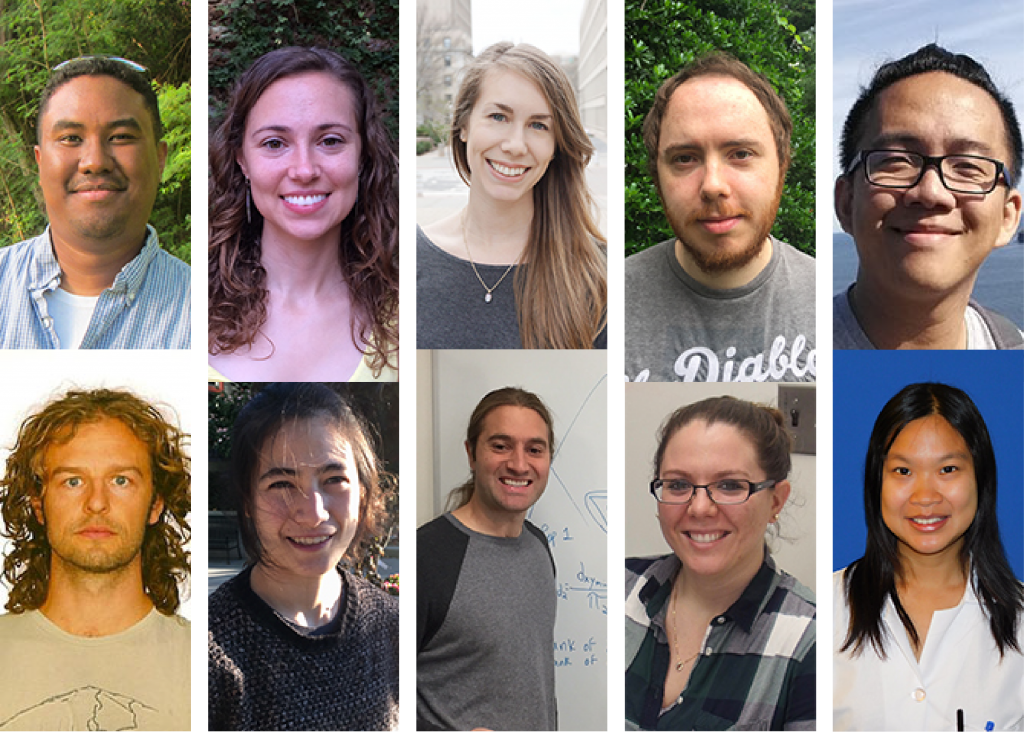GSA is pleased to announce the recipients of the DeLill Nasser Award for Professional Development in Genetics for Fall 2017. The award is given twice a year to graduate students and postdoctoral researchers to support attendance at meetings and laboratory courses. The award is named in honor of DeLill Nasser, a long-time GSA supporter and National Science Foundation Program Director in Eukaryotic Genetics. Nasser was regarded by some as the “patron saint of real genetics,” shaping the field through more than two decades of leadership. She was especially supportive of young scientists, people who were beginning their careers, and those trying to open new areas of genetic inquiry. For more about Nasser, please see the tribute from Scott Hawley, published in the August 2001 issue of GENETICS.
The next round of funding will open on August 31st with applications due on October 10th.
Graduate Student Awardees
![]()
Richard Coleman
Bowen Lab, University of Hawai’i at Mānoa
“My research is identifying larval dispersal pathways of reef fishes around the island of O’ahu, Hawai’i, to inform community-based management efforts.”
![]()
Marissa Fletcher
Kim Lab, MIT
“I study how a neuroendocrine signaling pathway influences organismal physiology as a result of the aging process and in response to an aging intervention, dietary restriction, using the model organism, C. elegans.”
![]()
Joshua Li
Millard Lab, University of Queensland
“I am studying a gene in the fruit fly to understand the regulation and function of alternative splicing in the development of neurons.”
![]()
Colin Olito
Connallon Lab, Monash University
“I study the evolutionary consequences of sex-differences in natural selection for non-model organisms — especially hermaphrodites (e.g., plants) and externally fertilizing species (e.g., many marine invertebrates).”
![]()
Jasmine Ono
Otto Lab, University of British Columbia
“I use lab experiments with yeast to uncover the role that genetics plays in the process of evolution.”
Postdoctoral Fellow Awardees
![]()
Emily Davenport
Clark Lab, Cornell University
“I study the factors that determine which bacteria live in your gut, including the food you eat, your environment, and your genetics.”
![]()
Daniel Grimes
Burdine Lab, Princeton University
“I use zebrafish to understand the mechanisms that cause spinal curves in scoliosis, a common human disease.”
![]()
Dan Schrider
Kern Lab, Rutgers University
“My research focuses on the development and application of computational tools to make inferences about natural selection and other evolutionary forces from patterns of genetic variation.”
![]()
Valerie Tornini
Giraldez Lab, Yale University
“I aim to understand how cellular diversity and specialization arises in the vertebrate brain.”
![]()
Jing Lin (Lucy) Xie
Jarosz Lab, Stanford University School of Medicine
“The goal of my research is to understand how genetic makeup affects risk and disease progression for common neurodegenerative diseases in the context of aging.”































